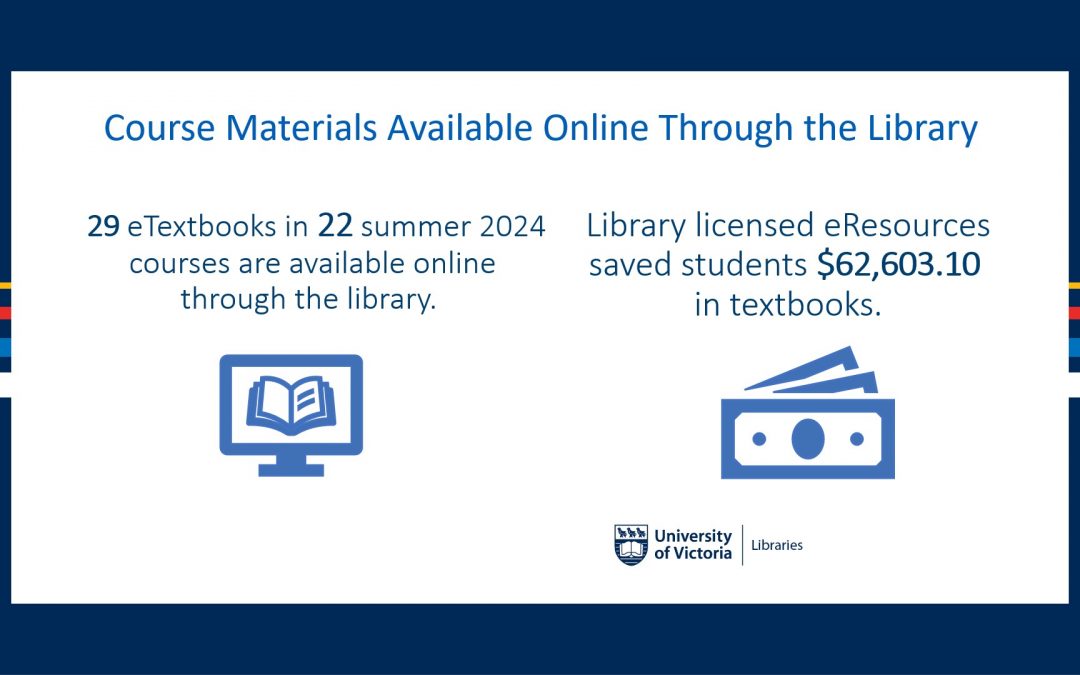
by Kristen De Jager | May 17, 2024 | Events, Open education
eTextbooks for Students (Summer 2024) We are continuing with UVic Libraries etextbooks for students project, which began in fall 2021. The project’s goal is to track the use of library licensed ebooks assigned in courses for the summer term. The project...
by Amelia Ritchie | Jan 12, 2024 | Events, News, Open education
eTextbooks for Students (Spring 2024) We are continuing with UVic Libraries eTextbooks for Students project to track the use of library licensed electronic books assigned in courses for the spring 2024 academic term. This project provides a list of electronic versions...
by Amelia Ritchie | Sep 27, 2023 | News, Open education
eTextbooks for Students (Fall 2023) We are continuing with UVic Libraries etextbooks for students project, started in fall 2021, to track the use of library licensed electronic books assigned in courses for the fall 2023 academic term. The project provides a list of...
by ikehoe | Jun 9, 2023 | Events, News, Open education
eTextbooks for Students ( Summer 2023) In our continuing effort to track the use of library licensed electronic books assigned in courses we identified 81 titles used in 40 courses during the summer semester. We searched the University Bookstore’s textbook catalog to...
by ikehoe | Dec 22, 2022 | News, Open education
eTextbooks for Students (2022-2023) We are continuing with UVic Libraries pilot project, started in fall 2021, to track the use of library licensed electronic books assigned in courses for the spring 2022-23 academic term. The eTextbooks project supports access and...


